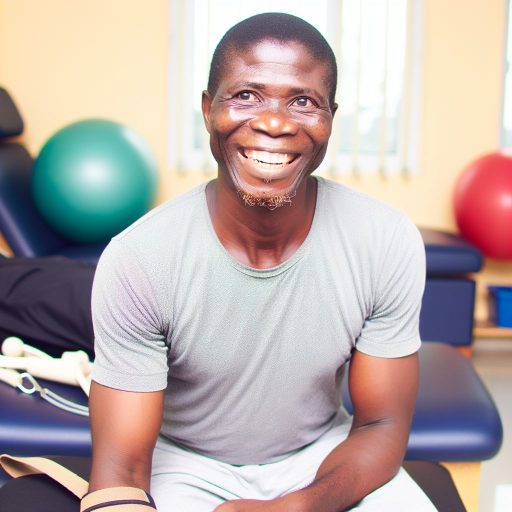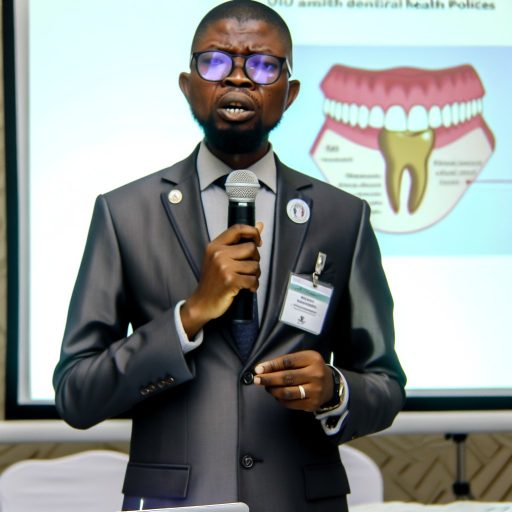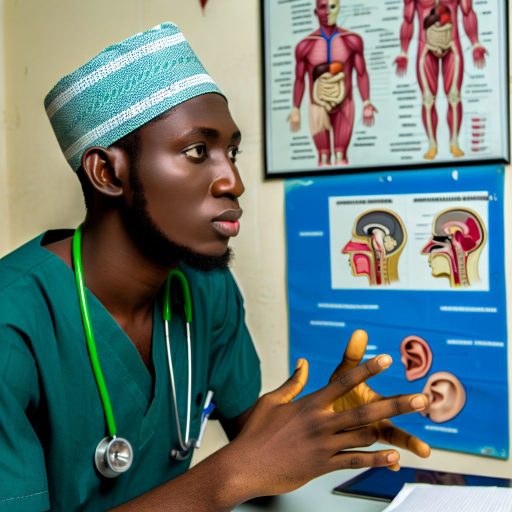Introduction
Medical school rankings play a significant role in Nigeria.
They help students make informed decisions about their education.
However, it is crucial to note that rankings may vary depending on the platform used.
Understanding these variations can provide a clearer picture of the quality of education.
This quality is offered at different medical schools in Nigeria.
History of Medical Education in Nigeria
Medical education in Nigeria has a rich history that dates back many decades.
The establishment of medical schools in the country has been a pivotal point.
It contributed to the evolution of healthcare infrastructure and education.
Let us delve into the history of medical education in Nigeria.
Brief History of the Establishment of Medical Schools in Nigeria
- The first medical school in Nigeria, the University of Ibadan Medical School, was established in 1948.
- Subsequently, other medical schools such as the University of Lagos Medical School and Ahmadu Bello University Medical School were founded in the 1960s.
- These institutions played a significant role in training medical professionals to meet the healthcare needs of the growing Nigerian population.
- Over the years, more medical schools were established in different parts of the country to bridge the gap in healthcare services and manpower.
- Today, there are several medical schools in Nigeria offering a range of undergraduate and postgraduate programs in various medical specialties.
Development of Medical Education and Infrastructure in Nigeria
- With the establishment of more medical schools, the quality of medical education in Nigeria has improved significantly.
- There has been a focus on enhancing the curricula, training facilities, and faculty to meet international standards.
- The evolution of medical education in Nigeria has also seen the introduction of modern teaching methods and technology in medical training.
- Medical schools in Nigeria now collaborate with international institutions and organizations to enhance research and training opportunities.
- Infrastructure development in medical schools has also been a priority with state-of-the-art facilities and equipment made available to students and faculty.
The history of medical education in Nigeria reflects a journey of growth, progress, and commitment to excellence in healthcare.
The establishment of medical schools and the evolution of medical education have played crucial roles.
They helped shape the healthcare landscape of the country significantly.
Criteria for Ranking Medical Schools in Nigeria
Medical school rankings in Nigeria depend on several factors.
These factors contribute to the quality of education and training students receive.
Prospective students, parents, and healthcare stakeholders use these criteria to make informed choices.
The key criteria used for ranking medical schools in Nigeria are outlined below.
Academic Reputation
- Quality of teaching faculty
- Accreditation status
- Success rate of graduates in licensing exams
- Research publications and collaborations
A medical school’s academic reputation reflects its credibility.
It shows the ability to provide a high standard of medical education.
The quality of teaching faculty is a crucial indicator of academic excellence.
Accreditation status confirms that the programs meet established standards.
The success rate of graduates in licensing exams reveals training effectiveness.
Research output and institutional collaborations also enhance academic reputation.
Research Output
- Number of research publications
- Citations in peer-reviewed journals
- Grant funding for research projects
- Collaborations with national and international research institutions
Research output is vital for ranking medical schools.
It shows the institution’s commitment to advancing medical knowledge.
Research publications indicate active participation in scientific discovery.
Citations in peer-reviewed journals measure the impact of research.
Grant funding reflects the ability to attract resources for projects.
Collaborations strengthen research quality and extend institutional networks.
Facilities
- Availability of modern equipment and laboratories
- Clinical training facilities and hospitals
- Library resources and digital learning technologies
- Student accommodation and recreational facilities
Facilities influence the learning environment for students.
Modern equipment and laboratories provide necessary practical training.
Access to clinical training facilities and hospitals enhances hands-on experience.
Libraries with extensive resources support academic research and study.
Digital learning technologies improve accessibility and engagement.
Student accommodation and recreational facilities promote well-being and productivity.
Alignment with International Ranking Standards
Ranking criteria in Nigeria share similarities with international standards.
Medical schools that excel in academic reputation, research, and facilities meet global benchmarks.
International collaborations and exchange programs enhance institutional standing.
Recognition from prestigious global organizations further boosts reputation.
Understanding these criteria helps stakeholders evaluate medical education quality and standards.
Prospective students benefit by selecting schools that align with their educational goals.
Transform Your Career with Expert Guidance
Get personalized mentorship consulting that’s tailored to your unique path. Our expert advice is actionable and exclusive.
Get StartedFind Out More: Innovations in Nigerian Oral and Maxillofacial Surgery
Top-Ranked Medical Schools in Nigeria
When it comes to medical education in Nigeria, several universities rank highest in the country.
These institutions are known for their high-quality programs.
They have experienced faculty, state-of-the-art facilities, and strong research opportunities.
Below is a list of some top-ranked medical schools in Nigeria.
University of Ibadan
- Description: The University of Ibadan is one of the oldest and most prestigious universities in Nigeria.
- Description: It has a long history of excellence in medical education and research.
- Strengths: Well-equipped laboratories, experienced faculty members, strong clinical training programs, and a focus on research and innovation.
Obafemi Awolowo University
- Description: Obafemi Awolowo University, located in Ile-Ife, is renowned for its medical programs.
- Description: The university is committed to producing highly skilled healthcare professionals.
- Strengths: Emphasis on hands-on training, modern teaching techniques, research collaborations with international institutions, and innovative medical curriculum.
Ahmadu Bello University
- Description: Ahmadu Bello University, located in Zaria, is a leading institution in medical education in Northern Nigeria.
- Description: It is known for its comprehensive medical programs.
- Strengths: Strong focus on community health, well-established hospital affiliations for clinical rotations, research-driven curriculum, and dedicated faculty members.
University of Lagos
- Description: The University of Lagos is a top choice for students pursuing a career in medicine.
- Description: The university offers a wide range of medical specialties and training opportunities.
- Strengths: Cutting-edge medical facilities, international partnerships for research and exchange programs, diverse patient populations for clinical experience, and innovative teaching methods.
University of Nigeria, Nsukka
- Description: The University of Nigeria, Nsukka, is known for its rigorous medical programs.
- Description: It has a commitment to producing competent healthcare professionals.
- Strengths: Emphasis on interdisciplinary learning, strong emphasis on ethical practices in healthcare, research collaborations with global institutions, and modern simulation labs for practical training.
These top-ranked medical schools in Nigeria continue to attract students from across the country and beyond.
Students seek high-quality medical education and training.
Each institution brings unique strengths and contributions to the field of medicine.
They help shape the future of healthcare in Nigeria and beyond.
You Might Also Like: Preventive Dentistry and Pregnancy: Key Tips
Challenges in Nigerian Medical Education
Medical education in Nigeria faces numerous challenges that affect quality.
These issues impact the rankings of medical schools in the country.
The challenges hinder effective delivery of medical training to students.
This limitation reduces the potential of Nigeria’s healthcare system.
Inadequate Funding
- Lack of adequate funding is a major challenge facing medical schools in Nigeria.
- This hampers institutions’ ability to maintain infrastructure and update equipment.
- Inadequate funding also limits research activities in medical schools.
- Medical schools struggle to attract and keep qualified faculty members.
Lack of Resources
- Medical schools often lack sufficient libraries, laboratories, and teaching materials.
- This deficiency hinders practical training and encourages theory-based education.
- The lack limits clinical placements and real-life medical exposure for students.
- Overcrowded classrooms and insufficient practical sessions affect learning quality.
Quality of Medical Education
- Funding and resource challenges reduce the quality of education in medical schools.
- Substandard facilities and limited hands-on experience weaken medical training.
- A gap exists between theoretical knowledge and practical skills among graduates.
- Education quality impacts competency and preparedness of healthcare professionals.
Effects of Challenges on Medical School Rankings
- Inadequate funding and resources directly affect the rankings of Nigerian medical schools.
- Low rankings often reflect the quality of education, research output, and facilities.
- Schools with limited resources struggle to provide competitive learning environments.
- A medical school’s reputation closely ties to the challenges it experiences.
Addressing medical education challenges is essential to improve training quality.
Better funding and resources will enhance the education provided to future professionals.
Focused efforts on high-quality education will improve rankings and reputation of schools.
See Related Content: Common Child Dental Issues in Nigeria

Improving Medical School Rankings in Nigeria
When it comes to improving medical school rankings in Nigeria, several key factors need consideration.
Addressing these challenges and implementing strategic initiatives can enhance reputation and attract top talent.
Suggestions for Addressing Challenges and Improving Rankings
- Increased funding: One major challenge facing medical schools in Nigeria is inadequate funding.
- By increasing financial resources, institutions can invest in state-of-the-art facilities, research programs, and faculty development.
- Investments in infrastructure: Improving infrastructure is crucial.
- Upgrading labs, classrooms, and IT systems enhances the learning environment and attracts top-tier students and faculty.
- Faculty development: Investing in faculty professional growth improves education quality and research output.
- Encouraging collaboration with international experts raises the institution’s profile.
- Research and innovation: Emphasizing research helps Nigerian medical schools gain global recognition.
- Encouraging students and faculty to publish in reputable journals and attend conferences showcases capabilities.
Importance of Collaboration Between Government, Academic Institutions, and Industry Stakeholders
Collaboration is key to improving medical school rankings in Nigeria.
Government agencies, academic institutions, and industry stakeholders must work together to pool resources and share best practices.
This cooperation drives innovation in healthcare education.
- Government support: The government plays a crucial role by providing funding, infrastructure, and policy support.
- Partnering with policymakers allows institutions to address systemic challenges and foster growth.
- Academic-industry partnerships: Collaborations help align curricula with market needs and promote research.
- Industry stakeholders offer internships, mentorships, and job opportunities for students.
- Knowledge exchange: Partnerships with international universities and research institutes benefit academic institutions.
- Exchange programs, joint research projects, and faculty exchanges enhance education quality and expose students to global best practices.
Enhancing medical school rankings in Nigeria requires concerted efforts from all stakeholders.
Addressing funding, infrastructure, faculty development, research, and collaboration will elevate institutional status.
Institutions can thus contribute significantly to advancing healthcare education in the country.
Find Out More: Introduction to Preventive and Social Medicine in Nigeria
Role of Medical School Rankings in Nigeria
Medical school rankings in Nigeria guide prospective students towards the best institutions.
Stakeholders include government bodies, educational institutions, and healthcare professionals.
They must collaborate to improve medical education standards effectively.
By enhancing the quality of education, infrastructure, and research opportunities, medical schools can advance their rankings.
All parties should work together towards producing competent healthcare professionals.
Improved medical school rankings will lead to better healthcare services for Nigeria.
Additional Resources
Specialty choice among final-year medical students and house …
Reducing maternal mortality in Nigeria: addressing maternal health …




